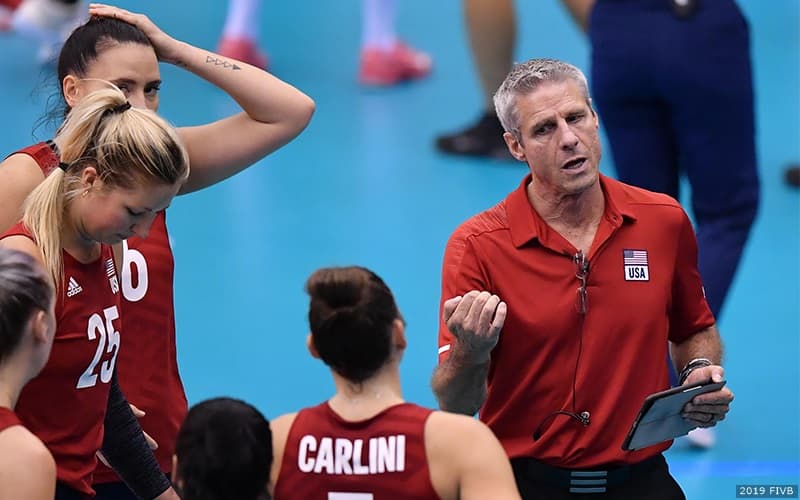
Originally published in Your Court, the official digital magazine of USA Volleyball.
Looking to take more of an active role on your team? Here's advice from top athletes and coaches for improving your leadership skills on and off the court.
Karch Kiraly – Head Coach, U.S. Women’s Indoor National Team
"I would remove the word ‘court,’ and focus on ‘better leader.’ Start by looking at the one person you control – you. You must be able to lead yourself before you can lead someone else. Otherwise, it will just seem phony. For example, if you’re not going full speed after every ball, you won’t have any credibility when you share your thoughts about effort."
J. Dee Marinko – U.S. Men’s Sitting National Team
Passion
Love what you’re doing and play with passion for the game.
Understanding
Play with understanding of what’s going on. Teammates are going to follow you if they know that you understand what’s happening during the match. Stay mentally engaged from whistle to whistle.
Focus
There will be distractions during a match. Leaders find a way to push themselves and their teammates through the distractions. It doesn’t matter if it’s on the court or off – just find a way to show that we can make it past this hurdle.
Presence
Embrace the moment and show that you’re meant to be there. Your teammates will follow.
Unity
Show on the court that you’ll support your teammates against anything.
Jordan Larson – U.S. Women’s National Team
"Sometimes, leadership is confused with feeling like there’s always something to be said. I’ve learned that the best way I can lead is by my actions … (by) setting the standard in how we approach different tasks related to the game."
A few examples are:
- Setting a tone of a strong work ethic during practices
- Having a resilient attitude when traveling – especially when conditions aren’t the best
- Approaching the job with the same amount of focus each day
Being able to set that standard is how I feel like I can lead best
Tyler Hildebrand – Director of Coaching, Beach National Teams
"Today, athletes value information and emotional understanding much more than discipline and authority, so leading is more about influence than control. Because technology makes information so readily available, athletes look for the right information, and who is giving it to them matters less. These relatively recent shifts are making leaders change their styles, and in the long run, this is a great thing."
Kawika Shoji
"Leadership for me starts with selflessness and love. Lead by example first with a strong work ethic. Then, find ways to uplift your teammates by encouraging them and connecting with them on and off the court. You’re truly a leader when you can find joy in lifting others up and watching them succeed."
